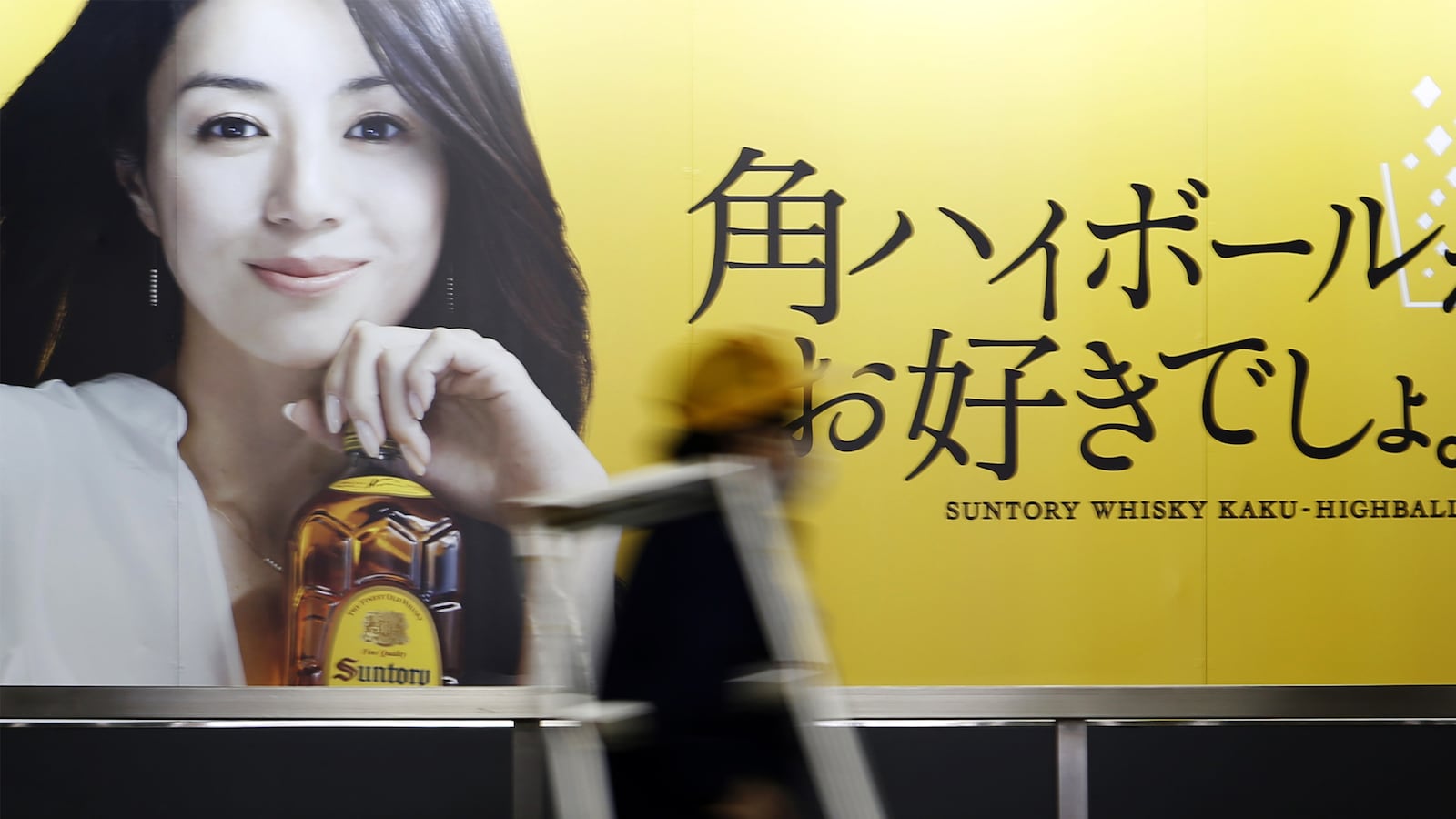If scotch whisky is a mountain stream, then Japanese whisky is a still pool.
That’s how Dave Broom, author of The World Atlas of Whisky and Whisky: the Manual explains it, anyway.So, when Japanese whisky Yamazaki Single Malt Sherry Cask recently snagged the top spot in the 2015 edition of Jim Murray’s Whisky Bible, beating out some of the most beloved Scottish and American varieties, it came as quite a shock. Mostly because no one had heard of it.But many spirits experts have long lauded Japanese whiskies as formidable—even the most elegant—drams. As whiskey popularity and enthusiasm has increased with the craft cocktail and spirits boom, Japanese companies have begun exporting more whisky overseas to places like the U.S., France, and Singapore. While it is growing rapidly in popularity, the truth is that it shouldn’t have taken one man to encourage whisky lovers to try it.Shinjiro Torii built the first whisky distillery in Japan in 1923 at Yamazaki on the island of Honshu. It eventually became the world’s largest Japanese whisky producer, Suntory, which now owns the Yamazaki, Hakushu and Hibiki brands.At that time, “Japan wanted to be modern. They wanted to be like the West, and the West was all about whisky in a big, big way,” says Neyah White, Suntory’s west coast brand ambassador.From the start, Japanese whisky was made to appeal to locals, reflecting their food, culture, and palate—and not specifically for export, as other spirits, such as cognac, were.“The Japanese consumer has absolutely zero tolerance for things out of balance. Everything is on purpose. And they are consumed with all things culinary,” White says. That means Japanese whiskies are beautifully balanced and elegant; they touch and develop on every sensor on the palate. They are not overwhelmingly oaky, or honeyed, or vanillin.In Japan, the master blender is the most important person in the production process and is as revered as a chef. The best whiskies are made with finesse and the same attention to detail and mindfulness as the finest teas or sushi. “They created whiskies where it's not one particular thing [that stands out] but many little things. It's the art of blending,” says David King, president of Anchor Distilling, which imports Nikka, the second biggest Japanese whisky producer, to the U.S.There are several distinct differences between Japanese whisky and scotch. Japanese whisky is not regulated in Japan or in the U.S., so producers have the freedom to experiment with flavors and techniques. Japanese distillers often use a combination of different types of stills and different casks, whereas the Scots cannot. Scotish distilleries also often buy each other’s stock to obtain the flavors or product they want, a big “no” in Japan where companies use only the whisky thy themselves have made.“There’s nothing boisterous about [Japanese whiskies] like there is about the American whiskies. The Japanese don’t want anything to go too far. And I think they’ve made a beautiful virtue out of them,” explains Lew Bryson, author of Tasting Whiskey.In a tasting I recently participated in, the Yamazaki 12 was floral on the nose and vanillin on the finish, making a fine candidate for a Friday night mizuwari with friends (mizuwari is a traditional Japanese highball of whisky and soda). The Hibiki 12 had the most perfumy aroma that made we want to take it to a gallery. The Hakushu 12 was a little peaty and nutty, the kind of dram I want to unwind with after a fine restaurant meal.It’s these qualities that result in many experts talking about Japanese whisky using metaphors associated with music, food, poetry, and art, sensory experiences that transport one to a different place and time. If Japanese whisky is like a symphony, then I am a contented listener.






